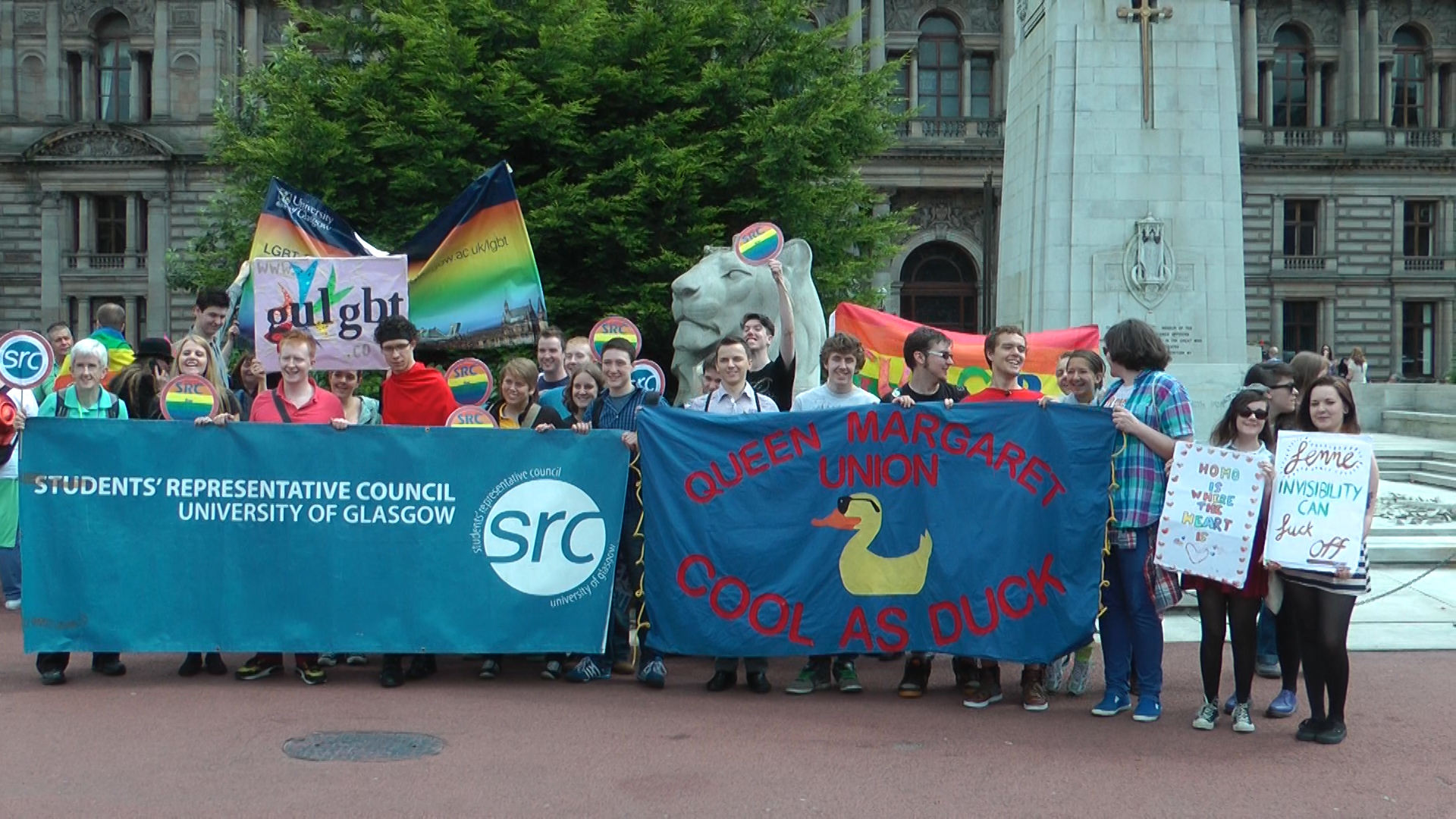
Pride is just around the corner – an event that alleges to promote equality and diversity but to what extent is that really the case? I’ve been left wondering about the diversity of Pride and who it’s really there to serve.
The run up to the event has not been without controversy this year. Glasgow, as well as Manchester and Leeds Pride, had booked a duo called Queens of Pop and subsequently pulled them from the lineup after receiving a lot of backlash. Queens of Pop, for those of you who are blissfully unaware, are an internet act who parody various celebrities and are best enjoyed if you both hate women and are a racist. I feel like maybe someone should have raised questions before booking an act that thought parodying Will.I.Am by dressing up as Black and White Minstrels while making stereotypically racist jokes was an acceptable form of entertainment. When you’re staging an event that aims to promote acceptance and understanding for one group it’s more effective when you’re not at the same time engaging in behaviour that is discriminatory towards another. Yes, they pulled the act, but what the booking exemplifies is the fact that Pride is largely geared towards white gay males.
Take a look at this weekend’s lineup – almost all of the acts seem to have been selected based on their appeal to gay men, there’s little for anyone else. Of course, Pride is more than a stage and a couple of acts, it kicks off with a parade that marches through part of the city. A diverse range of groups take part and it’s fantastic – this is when the atmosphere is at it’s best, but that doesn’t seem to be maintained throughout the day. Pride particularly struggles to be inclusive of bisexual and trans* folk. Last year I can remember thinking it was a bit inappropriate that the host was making jokes at the expense of bisexuals. I don’t care who it’s coming from, I like my biphobia non-existent, particularly at an event that claims to be educating against the discrimination of bisexuals.
One of the aims of Pride is to promote the acceptance of LGBT people in this country; parading through city centres is a way of asserting our presence in society. But perhaps we should be looking a bit closer to home when we’re thinking about acceptance. There are so many problems within our community that Pride could be tackling – biphobia, transphobia and misogyny to name but three. If we want society to accept us we need to accept one another and a zero-tolerance attitude towards any kind of bigotry needs to be adopted. There are different kinds of discrimination – the discrimination I face as a queer woman is not the same as what someone may face because they are a transman, for example. The discrimination I do face, however, should make me aware of the fact that discrimination in general is pretty awful and that I do not want to be a part in its perpetration in any shape or form. There seems to be a lot of reluctance when it comes to acknowledging the issues in our own backyard but it’s about time for hands to go up; you most certainly do not need to be heterosexual in order to be a bigot.
It’s not as though there isn’t plenty we could be doing to help those groups in our community who are often sidelined. Let’s have a look at equal marriage, which has been a cause for celebration recently. Are you aware of the spousal veto? It’s a clause that means a married person who is transitioning and wishes to gain their Gender Recognition Certificate must have their partner’s permission in order for the marriage to continue. The
problem here is that unsupportive spouses (and half of trans* people report a negative reaction from their partner) can dig their heels in and make a divorce difficult – and until either permission is given or a divorce is granted a person can not gain their full GRC. Our community should be concerned about the welfare of trans* people and it’s not a victory for us all when we’ve left someone behind. This isn’t just a failing of the of the government, it’s a failing of the very people who have been campaigning for marriage equality.
What do I want from Pride? I want a real sense of community and that means working on stamping out the bigotry that is detrimental to it. I want everyone to enjoy celebrating their own diversity without facing negativity during an event that is supposedly for us all. I also want us to get a little bit more angry. Let’s get serious for a moment: LGBT people are more likely to suffer from depression, they are more likely to attempt suicide (the estimated rate among trans* people is enough to make you cry), they are more likely to be sexually abused, they are more likely to face bullying at school and in the workplace – and that’s just for starters. Educating is part of Pride’s remit so let’s educate ourselves and get more political.
Pride is a platform with a lot of potential for doing good, but if we’re going to maximise that we first we have a bit of work to do.
-Erin MacKenzie

